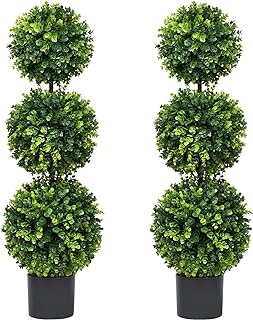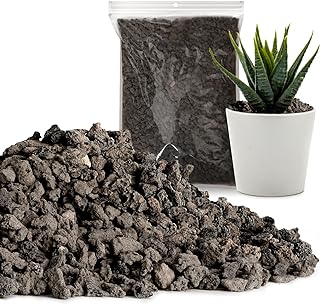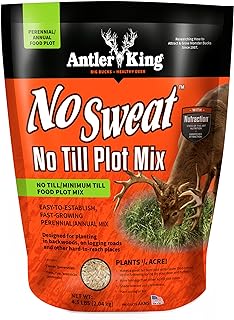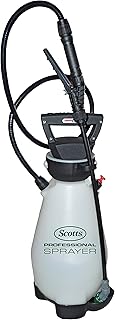5 important factors worth considering when looking for the best rocks for plant drainage
Choosing the right rocks for plant drainage is important for the health of your plants. The rocks you pick can have a big impact on how well your plants grow. It’s not just about looks – it’s about taking care of your plants and helping them thrive. Knowing how to choose the right rocks means understanding what will work best for your plants. Different types of rocks, like volcanic rocks or gravel, each have their own benefits and things to consider. By learning more about rock selection, you can create a garden that flourishes because of the smart choices you make.
See our guide to the best rocks for plant drainage.
Size of the rocks
When choosing rocks for plant drainage, it’s important to consider the size. Small rocks can make it hard for water to drain properly and can compact the soil. But if the rocks are too big, they can create gaps that block water flow and cause root rot. Medium-sized rocks strike a balance by allowing water to drain through while still providing stability to the soil.
The size of the rocks you choose doesn’t just affect plant health, but also the look of your garden. The right size rocks not only help with drainage but can also make your plants look nicer. By picking the right size rocks, you can create a polished and balanced look that complements your plants, making your garden a beautiful and healthy place for them to grow.
Porosity of the rocks
When we think about using rocks for plant drainage, we need to pay close attention to how porous they are. Porosity is important because it affects how well water can flow through the rocks and soil, which is essential for keeping our plants healthy. Rocks that are very porous help prevent the soil from becoming waterlogged, which can harm plant roots. Choosing rocks that are porous helps to improve air flow in the soil, which helps plants absorb nutrients better and grow healthier roots.
Using porous rocks not only protects our plants from suffocating, but also creates a better environment for them to thrive and grow to their full potential. The porosity of rocks quietly plays a vital role in keeping our plants healthy by allowing excess water to drain out of the soil, reducing the risk of root rot and other water-related issues. By selecting porous rocks carefully, we not only enhance the look of our plants but also show that we care about their long-term well-being.
Porosity in rocks may not seem important, but it is actually a key factor in successful plant care. It shows our dedication as plant caretakers and helps create a healthy environment for our green friends to flourish in.
Weight of the rocks
When you’re thinking about buying rocks for plant drainage, it’s important to consider how heavy they are. The weight of the rocks you choose can make a big difference in how well your plants grow.
Lighter rocks like pumice or perlite can help with drainage without putting too much strain on your plant containers. On the other hand, heavier rocks like gravel or river stones can be difficult to move and may squish the soil, making it hard for roots to grow and causing water to gather.
Picking the right weight of rocks for plant drainage means finding a balance between what works well and what’s practical. Lighter rocks not only help your plants grow better, but they make it easier for you to take care of them. They’re also usually cheaper and easier to find, which is great for all kinds of gardeners.
By focusing on the weight of rocks in your plant drainage system, you can create a nice environment for your plants to thrive in without a lot of hassle.
PH level of the rocks
When you buy rocks for plant drainage, it’s important to think about the pH level of the rocks so they won’t harm your soil. Picking the right rocks can prevent changes in pH levels that might harm plant growth. Rocks with high alkalinity can change the acidity of the soil, causing problems like nutrient deficiencies and stunted growth in your plants. By choosing rocks with a neutral pH, you can create a stable environment for your plants to grow well.
Understanding how rocks and soil pH are linked can help you create a good environment for your plants. Buying rocks with a balanced pH level shows that you are committed to giving your plants the best conditions to grow in. By paying attention to this aspect of plant care that is often ignored, you can prevent problems and create a balanced ecosystem where your plants can thrive.
Resistance to decomposition
When buying rocks for plant drainage, it’s important to choose ones that won’t break down over time. By picking durable rocks, you can ensure that your plants’ soil stays strong and stable. This means you won’t have to worry about the rocks falling apart and harming your plants in the future. Investing in tough rocks lays a solid foundation for a healthy plant environment that can withstand decay.
In addition, durable rocks offer a sustainable solution for your gardening needs. By choosing rocks that last a long time, you can save money and help the environment since you won’t need to replace them as often. Selecting rocks that can handle the elements and stay strong over time is a smart choice that supports sustainability. By prioritizing tough rocks in your selection process, you not only protect your plants but also contribute to a more eco-friendly gardening practice that benefits your garden and the environment.
Conclusion
Using rocks for plant drainage is essential for promoting healthy plant growth. Rocks help prevent issues like waterlogging, root rot, and nutrient depletion by ensuring proper water drainage. This not only improves soil aeration but also supports the sustainability of plant ecosystems. Incorporating rocks for plant drainage is crucial for creating thriving green spaces and shows our dedication to nurturing healthy plants. Want more info on dexcom g7 over patches, check the best dexcom g7 over patches.




